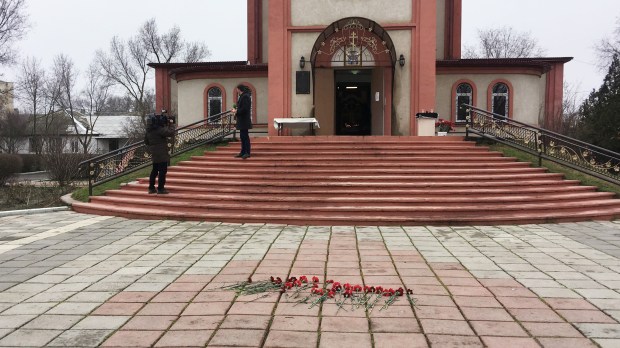In what context did this attack take place?
Dagestan, on the border of Chechnya, Georgia and Azerbaijan, is one of the poorest regions of Russia. With 90% of the population Sunni Muslim, it remains marked by the Chechnya war, which took place on its border. The attack on Sunday, Feb. 18, was aimed at a church and took place on “Fat Sunday,” a religious holiday for the Orthodox, which precedes Lent. In addition, this attack took place in the city of Kizliar, whose inhabitants are known to be loyal to the Russian regime. Xavier Moreau, a businessman and politico-strategic analyst based in Moscow, recalled that during the war in Chechnya, the Kremlin handed over weapons to its inhabitants so that they could defend themselves against Chechen Islamists. In targeting this pro-Russian city, Russia is targeted.
Was there an organization sponsoring the attack, or was it a lone gunman?
At this stage of the investigation it is impossible to make conclusions with any certainty. One can nevertheless note that the Islamic State claimed responsibility for the attack. Moreover, the Islamist group that historically imposed terror in the region, the so-called Emirate of the Caucasus, does not seem to be behind this attack. The “Emir,” Doku Umarov, died before the Sochi Olympics, and his emirate did not survive. The Islamic State’s involvement, other than as a source of inspiration, has not been established. Sunday’s assassin had limited means (shotgun and knife) and was accompanied by his wife. The latter has been arrested, and her interrogation should teach us more.
Does this attack threaten the stability of this region?
“We should not imagine this region as a united front of Muslims opposed to Orthodox Christians,” says Xavier Moreau. Muslims are certainly in the majority, but there is no frontal opposition against Orthodox Christians. Dagestan is a region that brings together no less than 40 nationalities, he says. His opinion is shared by Archbishop Barlaam of the Diocese of Makhachkala, the capital of Dagestan. He stated “I am convinced that no matter who is behind this monstrous crime, he will not succeed in destroying peace and harmony in our multinational and multi-faith republic. In spite of everything, we, and our brothers who confess Islam, were, are, and will be good neighbors and the sons of one Father. ”
Is the Orthodox community a target?
Clearly, targeting Christians in front of a church on a feast day fuels religious tensions, but division in Dagestan is more political than religious. The region is plagued by corruption and organized crime.
How to explain this attack?
While we cannot for the time being exlude the “lone gunman” theory, this attack might have been a response to the vast anti-terrorist operations in place throughout Russia. A large-scale operation took place two weeks ago, and Xavier Moreau, from Moscow, notes that the security forces are on alert, obviously fearing aftershocks. It could also be a reaction to the anti-corruption campaign launched in the area, in the run-up to the March 18 presidential election. In addition, last October, Vladimir Putin replaced Ramazan Abdulatipov at the head of Dagestan with a Russian, Vladimir Vassiliev.
This article first appeared in the French edition of Aleteia.

